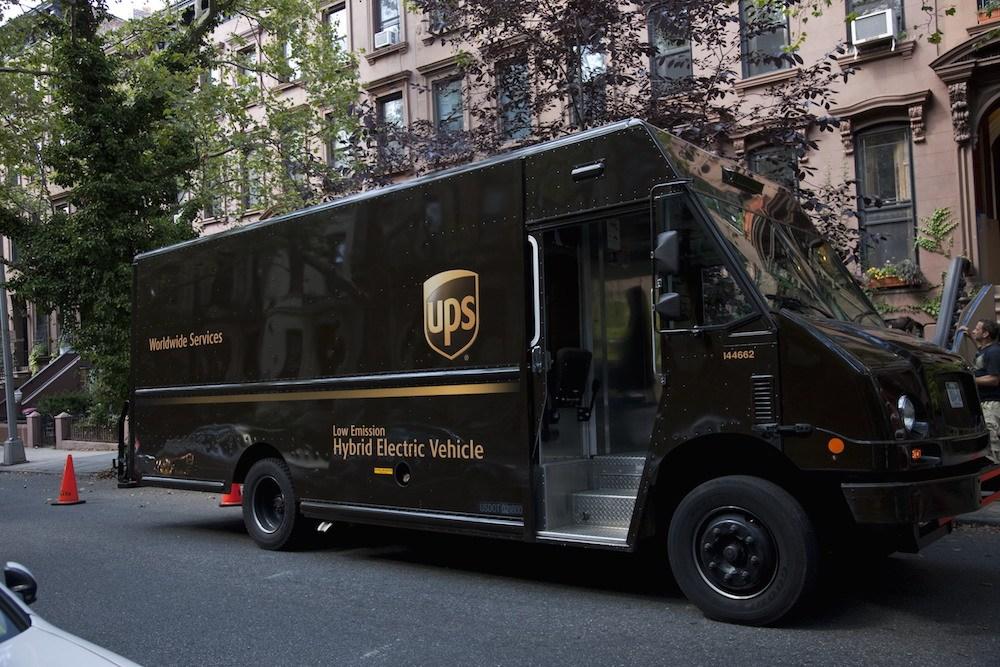
By Mark Wallace, UPS
As the effects of climate change become more apparent, it is increasingly the responsibility of big brands, which have both the size and scale to make a tangible difference, to identify solutions to pressing environmental challenges.
The transportation and logistics industries are no exception. Greenhouse gas emissions from transportation accounted for approximately 26 percent of total U.S. emissions in 2014, making it the second largest contributor after the electricity sector. Within the sector, light-duty vehicles (including passenger cars and light-duty trucks) were by far the largest contributor, accounting for 61 percent of emissions, while medium- and heavy-duty trucks made up the second largest category, with 23 percent of emissions.
The impact from GHG emissions is not only an environmental issue, but also a business one. The need for sustainable solutions is urgent: An additional 1 billion people will move into cities by 2030 and 670 million more light-duty vehicles will be on the world’s roads by the same year. More vehicles mean more greenhouse gases, reduced air quality and increased congestion which makes it harder to freely move goods through urban areas.
As a global provider of transportation and logistics services, my company, UPS, is acutely aware of how sustainable urban transportation solutions can create more efficient business operations. This is why it is important for companies like ours to invest time and resources into creating and implementing solutions that will help revolutionize global transportation, and participate in cross-company collaborations to ensure lasting impact.
Growing commitments and investments in transportation innovations
This year marks more than 10 years of learning from UPS’s rolling laboratory, our cutting-edge approach to finding and deploying alternative fuel and advanced technology. This research-based method helps us identify the most efficient transportation methods and solutions to logistical challenges in a range of regions and environments. We’re now driving more than 1 million miles every business day, around the world, in our alternative fuel and advanced technology fleet. In 2015 alone, our rolling laboratory helped avoid using 49 million gallons of conventional gas and diesel and decreased CO2 emissions by 150,000 metric tons.
Through the years, I’ve witnessed other committed companies in the transportation industry develop innovative solutions that have helped to shape a more sustainable future. From electric and hydrogen-powered cars to personal rapid transport, transportation has seen a radical progression toward lower emissions in recent years. These innovations have collectively increased the number of companies that make and use the vehicles and infrastructure that will form the backbone of tomorrow’s sustainable transportation solutions.
The critical value of collaboration
The challenges may seem immense and, at times, insurmountable. As industry players invest in sustainable solutions to pressing challenges, it is often the cross-company collaborations that can make lasting impacts. Innovation, particularly industry-changing innovation, happens through connecting previously unconnected bodies of knowledge. In this spirit, based on UPS’s years of commitment to more efficient transportation, our advice to companies developing their own approaches to sustainable solutions is four-fold:
1. Encourage innovation. What started out as an “approach” with our rolling laboratory has become an ecosystem of innovation and progress shaped by collaboration with suppliers, policymakers and other stakeholders. Our 100,000 global vehicle fleet has spurred technological and infrastructure improvements to make cleaner fuels and technologies economically viable.
2. Adapt and tailor the solution. There can be multiple solutions based on needs in different scenarios. With respect to UPS’s work, the fuels and vehicles that work in one region or one setting may not make sense in another. Technology constraints, product use, infrastructure availability, government policies and environmental or social goals all play a role in determining custom solutions throughout the globe.
3. There's no substitute for data. Each day, UPS views 30,000 delivery route optimizations per minute through its On-Road Integrated Optimization and Navigation (ORION) system, which uses fleet telematics and algorithms to reduce the number of miles driven. The application of this big data approach to the UPS rolling laboratory’s fleet has improved vehicle and delivery performance and reduced fuel, emissions and costs.
4. Stay Committed. Economic and market forces are constantly changing, and the political environment that is necessary to foster investment and infrastructure development can be unpredictable. It took UPS more than a decade to reach a point where the accumulation of miles driven by its fleet offered a clear return on investment. During that time, we have measured and reported our progress in our annual Sustainability Report, thereby offering insights to improve and support these long-term commitments.
Accelerated innovation of the transportation industry is dependent on the investments of like-minded corporations, industry trade groups and government organizations all working toward the goal of decreasing emissions. Collaboration, sharing of key insights and best practices will also be necessary to drive sustainable transportation forward in the coming years. UPS is committed to being at the forefront, and working with other leaders in the business, nonprofit and government sectors to use innovation as a tool for addressing these challenges.
Image credit: UPS
Mark Wallace is Sr. Vice President of Global Engineering and Sustainability for UPS.
TriplePundit has published articles from over 1000 contributors. If you'd like to be a guest author, please get in touch!














